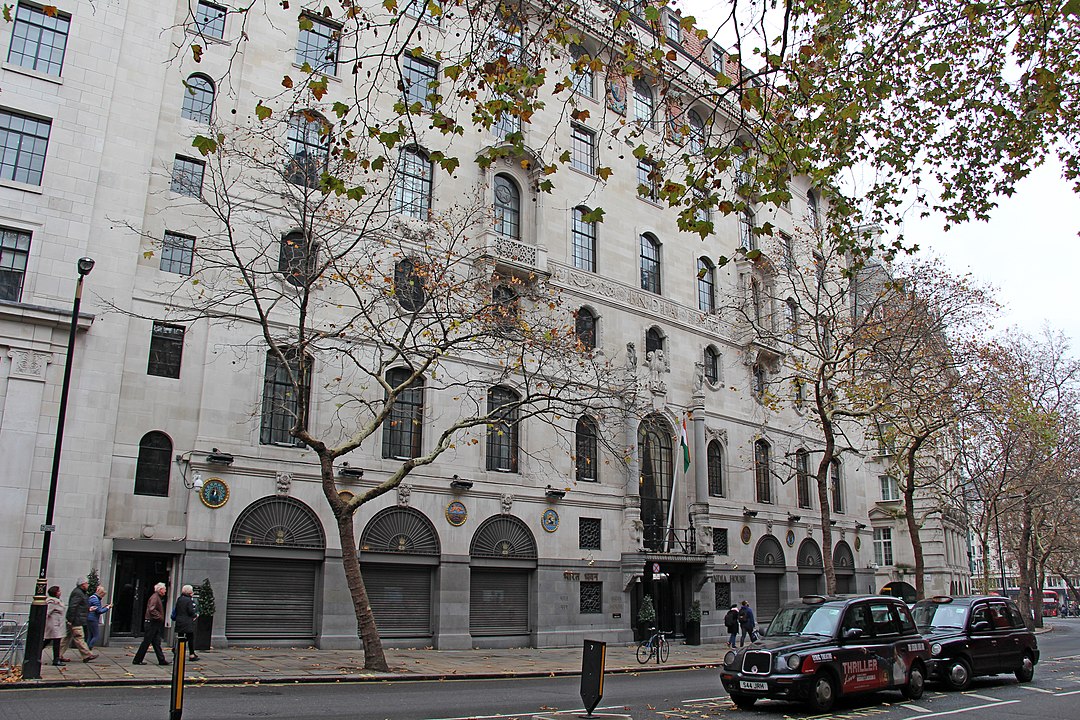At the stroke of twilight on October 14, 2022, some one-fourth of the entire population of Indian students in the UK gathered in three tiny halls of India House in London. What unfurled thereafter was not a greeting by the High Commission but a lecture on ‘how to be a good Indian in the UK’.
Even before the keynote speaker, Vikram Doraiswami, the High Commissioner of India in the UK, took the stage, chants of “Bharat Mata ki Jai” were demanded from the crowd.
But that was just the beginning.
After the High Commissioner finished up with generic housekeeping tips, he subtly moved on to not just explain but force-feed us about our own Indian identity. The next 15 minutes was a desperate attempt to control our thoughts, experiences and identities. We stood there in silence – our phone silenced or switched off – listening about ‘being a good Indian’.
Urging us to be involved in the “desi diaspora” – not politically but just culturally – Doraiswami went on to explain to us our “pehchan” (identity). We were asked to forgo our politics back home and stay united under the blue colour of our passports. I just wish the Indian government recognised the irony in its obsession with documents and identity both back home and here in London. Some documents unite us as Indians whereas back home those same documents are sometimes not enough.
We were asked to forsake our identity politics that defined us at home and embrace our Indian-ness. True to Indian values, we were asked not to bring our domestic strife into this foreign land.
In that room full of people from all over India, all I could think of was what it’s like to be an Indian without politics. At a time when communal unrest between Hindus and Muslims broke out in Leicester less than a month ago, why are we being asked to be apolitical? If the diaspora itself is reflecting the regressive right-wing actions and propaganda that are celebrated back in my motherland, are we not supposed to have a voice?
A homogenous umbrella of India in the UK – where people will forget their histories – cannot exist because people who come from my country don’t always begin the race to reach this destination from the same point. I am asked to forget my position and be proud. Am I supposed to be proud to be an Indian? And what is it exactly that defines my Indian identity? Is it just my passport? To a British person, I am South Asian and I am the same as the Pakistani girl in my class because we look the same.
Is culturally participating in only Hindu festivals enough to be Indian?
The High Commissioner said that the general impressions of Indians are good. Mistaking stereotypes like –“Indians are studious, serious and techy” – as respect, he wanted us to be good Indians. The several references to the Azadi Ka Amrit Mahotsav as a mission felt like the government was attempting an erasure of memory, history and past.
We were told to ponder on the fact that India has “phenomenally” changed.
To remember your politics is to remember yourself and thereby understand that the umbrella of Indianness that we are so conveniently boxed into is exclusionary and reeks of Hindutva ideologies. It is a mission to make us intellectually less independent where we are mindlessly focused on what seems like Bollywood’s representation of Indian culture. We are to dance, sing, and have fun but forget that the High Commissioner named several Indian festivals from across the country and very conveniently forgot Eid.
The entire evening was a sweet reminder of the two boons of Indians living outside the country especially in the UK. Firstly, their colonial hangover and finally their compliance to the BJP government in India. Somewhere at the end of the programme, the conductor chided a rather noisy group and said, “Come on, people! You are in London, behave!”
That evening, I learnt that there is a good and bad way to be an Indian. It is mandatory to pick a side. I should always be apolitical, unquestioning and compliant because to forget is to forgive the government’s atrocities and its crimes.
I learnt that I am judged by own countrymen based on my politics and history and that patriotism is measured as blind faith in the BJP government. I learnt that I need to rethink my position and change my behaviour because if it is too challenging I might get into trouble – not with people in this foreign land, but back home.
That evening, I learnt that there might not be a proper way to be a good Indian abroad.
But there is always the right way.
Featured image: Wikipedia/CC BY 2.0/Fred Romero

